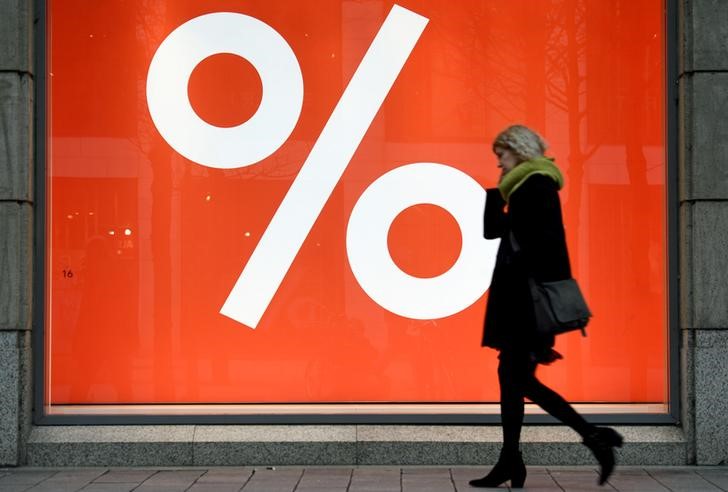Investing.com’s stocks of the week
BERLIN (Reuters) - The cheerful mood among German shoppers darkened slightly more than expected heading into March, a survey showed on Wednesday, suggesting political concerns could be weighing on a consumer-led upswing in Europe's
biggest economy.
Household spending has overtaken exports as Germany's main source of economic expansion in recent years as record-high employment, increased job security, above-inflation pay hikes and low borrowing costs all help open shoppers' wallets.
Nevertheless, the Nuremberg-based GfK institute said its consumer sentiment indicator, which is based on a survey of around 2,000 Germans, slipped to 10.8 points going into March from 11.0 in February, which was the highest level since 2001.
The March reading compared with a Reuters consensus forecast for the index to edge down to 10.9.
GfK researcher Rolf Buerkl pointed to the political uncertainty since last year's inconclusive federal election as a factor behind the drop in all three components of the indicator.
"The political turbulence surrounding the formation of a stable, viable government in Berlin may have unsettled consumers," Buerkl said. "Despite this setback, consumer optimism among German citizens remains high," Buerkl added.
The GfK survey was conducted from Jan. 26 to Feb. 9, mainly during ongoing coalition talks between Chancellor Angela Merkel's conservatives and the Social Democrats (SPD), which resulted in an agreement on Feb. 7.
GfK's subindex measuring income expectations fell 3 points on the month to a three-month low of 53.8, while consumers' propensity to buy dropped by 4.1 points to 56.3 which was the lowest since July.
The sub-index measuring overall economic expectations plunged to 45.6 points from 54.4 in the previous month, but it was still far above levels seen a year ago.
"Despite losses in this month, consumers continue to view economic prospects with optimism," Buerkl said. "Germany's economy is currently running at high capacity and consumers expect this to continue in the coming months."
The DIHK Chambers of Industry and Commerce expects the German economy to grow by 2.7 percent this year, which would be the strongest pace since 2011.
The GfK data followed other sentiment surveys that showed German business morale deteriorated more than expected in February as a stronger euro clouded the outlook of exporters and investor morale also fell.
MARCH 18 FEB 18 MARCH 17
Consumer climate 10.8 11.0 10.0
Consumer climate components FEB 18 JAN 18 FEB 17
- willingness to buy 56.3 60.4 51.6
- income expectations 53.8 56.8 48.1
- business cycle expectations 45.6 54.4 9.7
NOTE - The consumer climate indicator forecasts the development of real private consumption in the following month.
An indicator reading above zero signals year-on-year growth in private consumption. A value below zero indicates a drop in comparison with the same period a year ago.
According to GfK, a one-point change in the indicator corresponds to a year-on-year change of 0.1 percent in private consumption.
The "willingness to buy" indicator represents the balance between positive and negative responses to the question: "Do you think now is a good time to buy major items?"
The income-expectations sub-index reflects expectations about the development of household finances in the coming 12 months.
The additional business-cycle expectations index reflects the assessment of those questioned of the general economic situation in the next 12 months.
(
